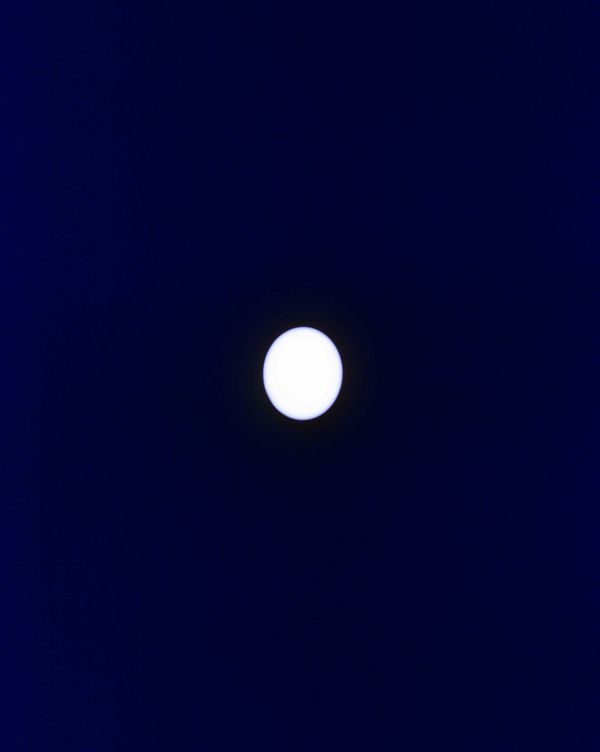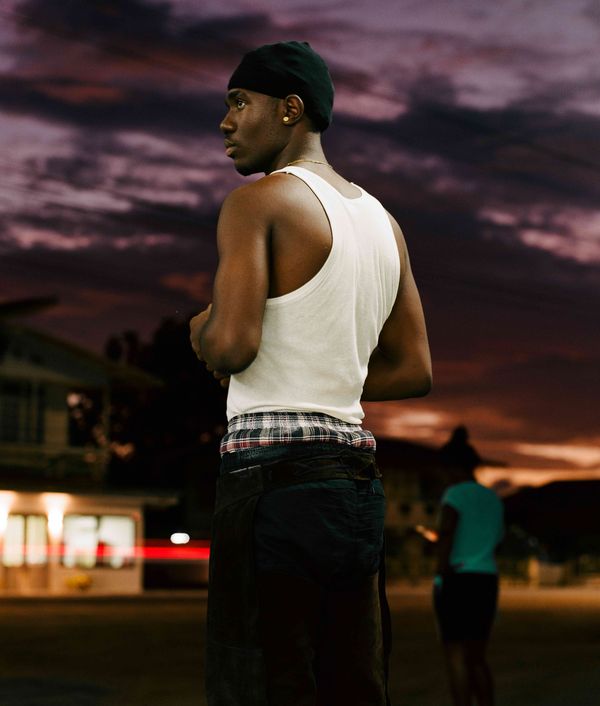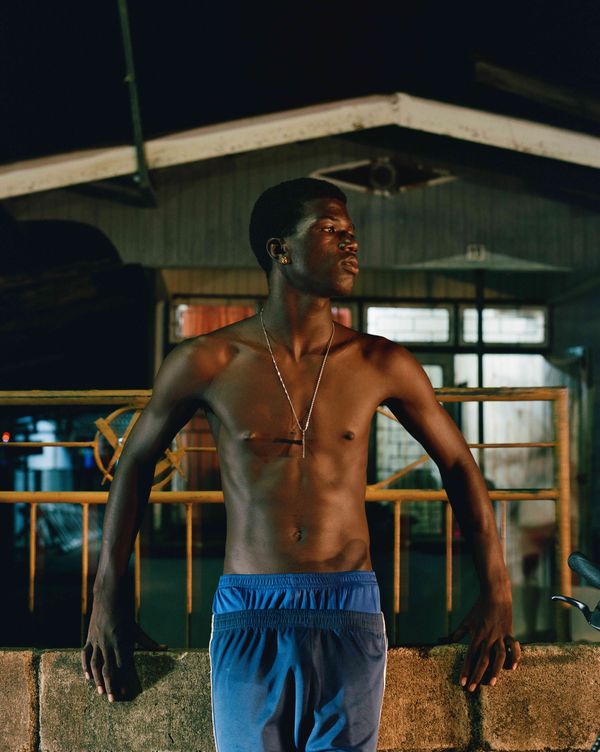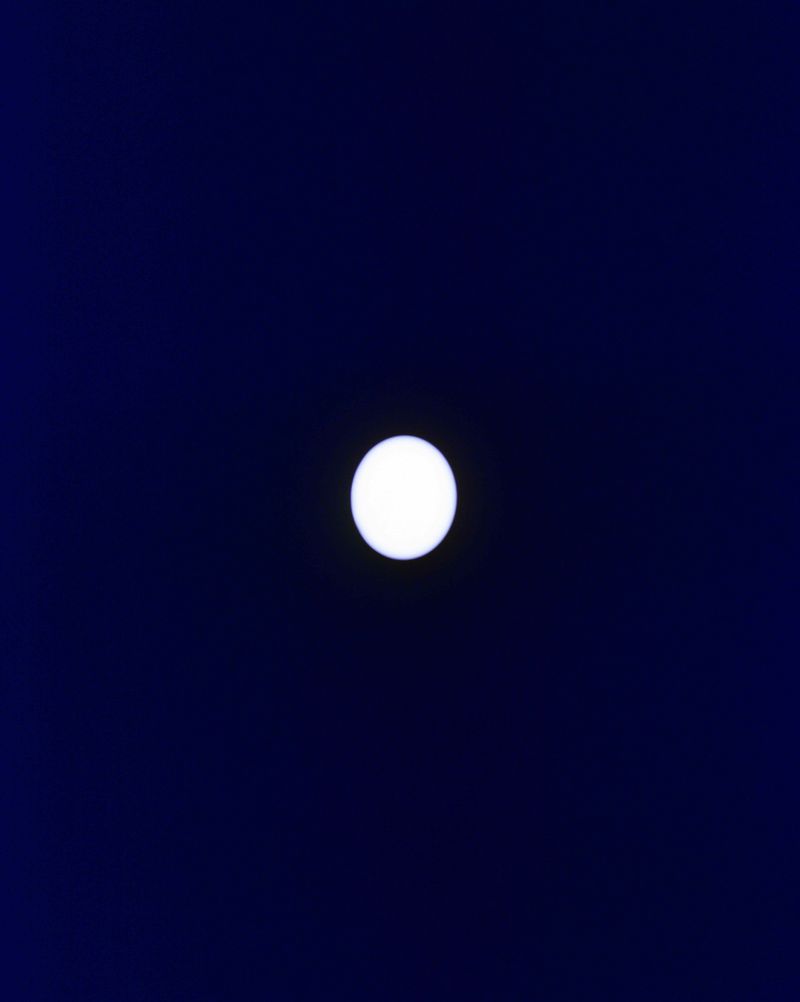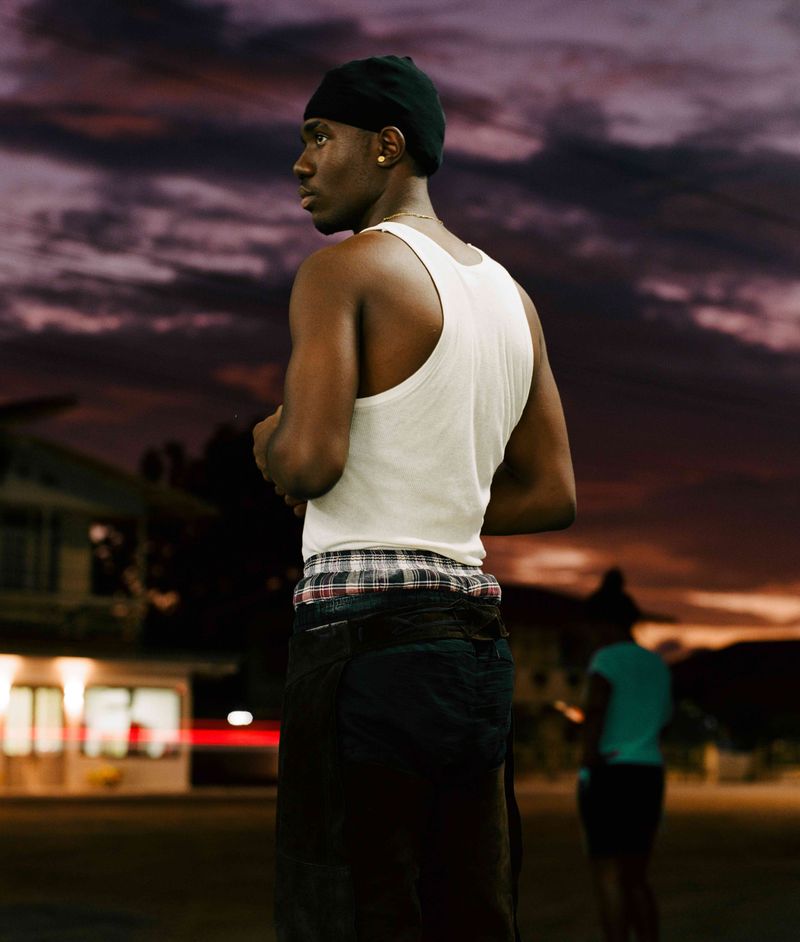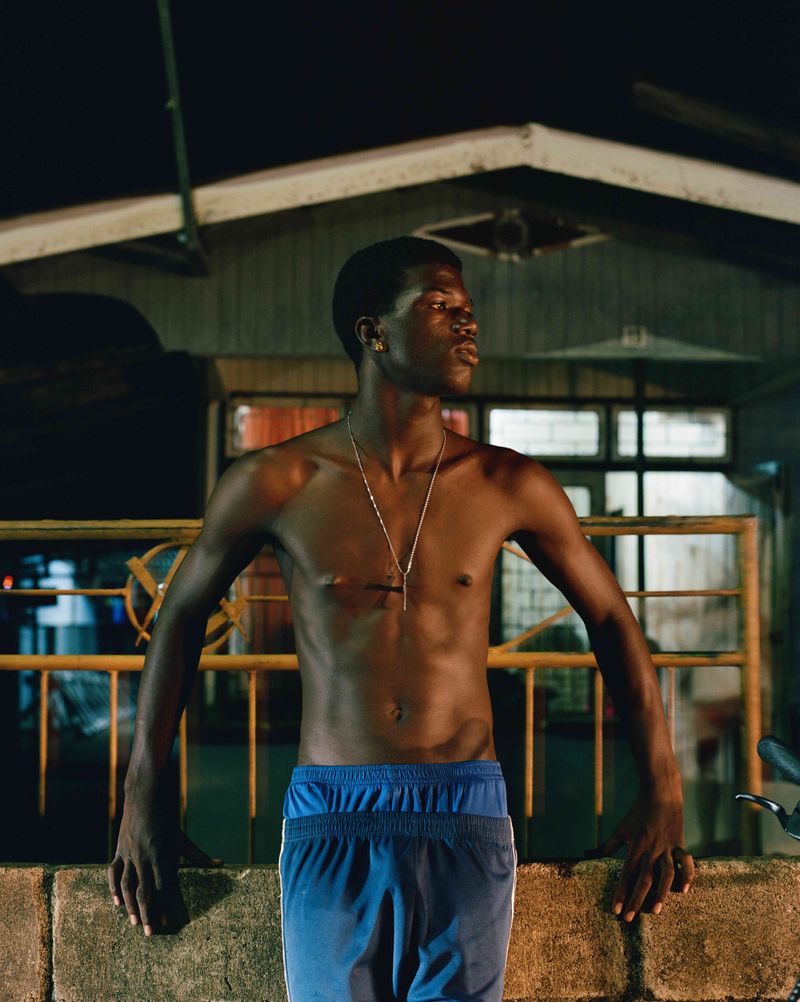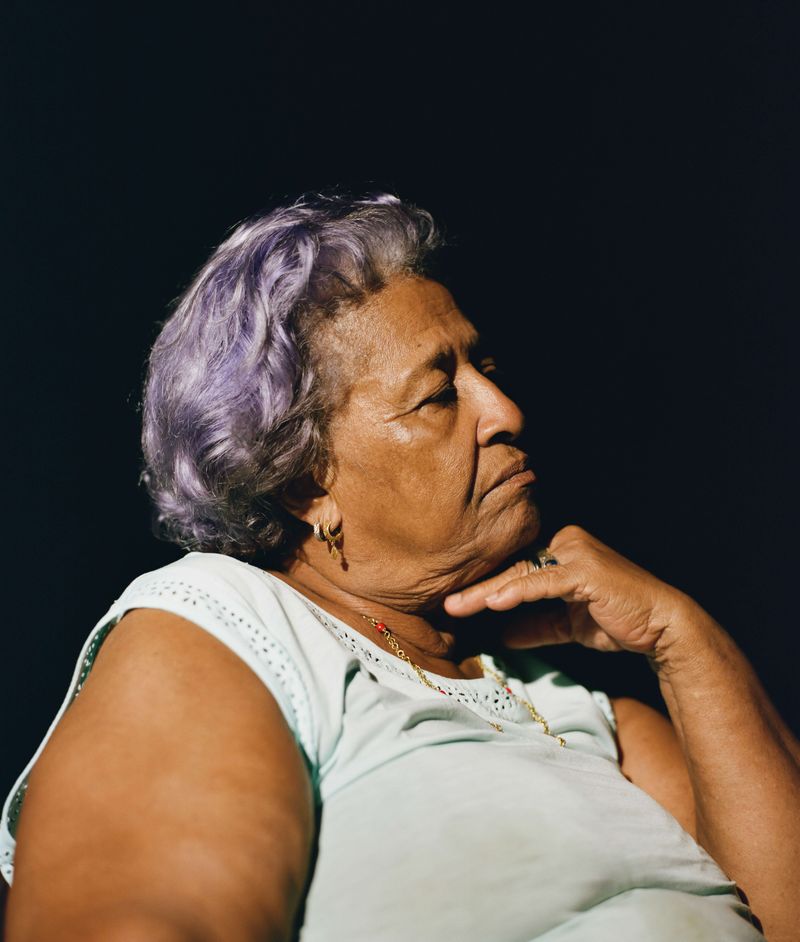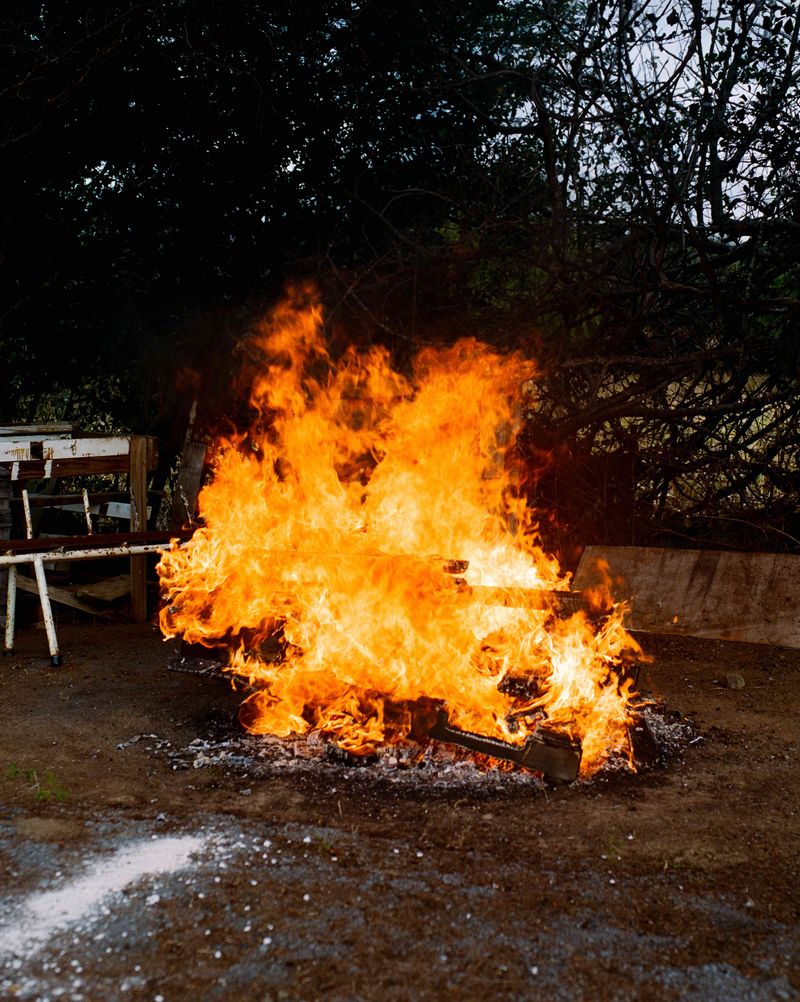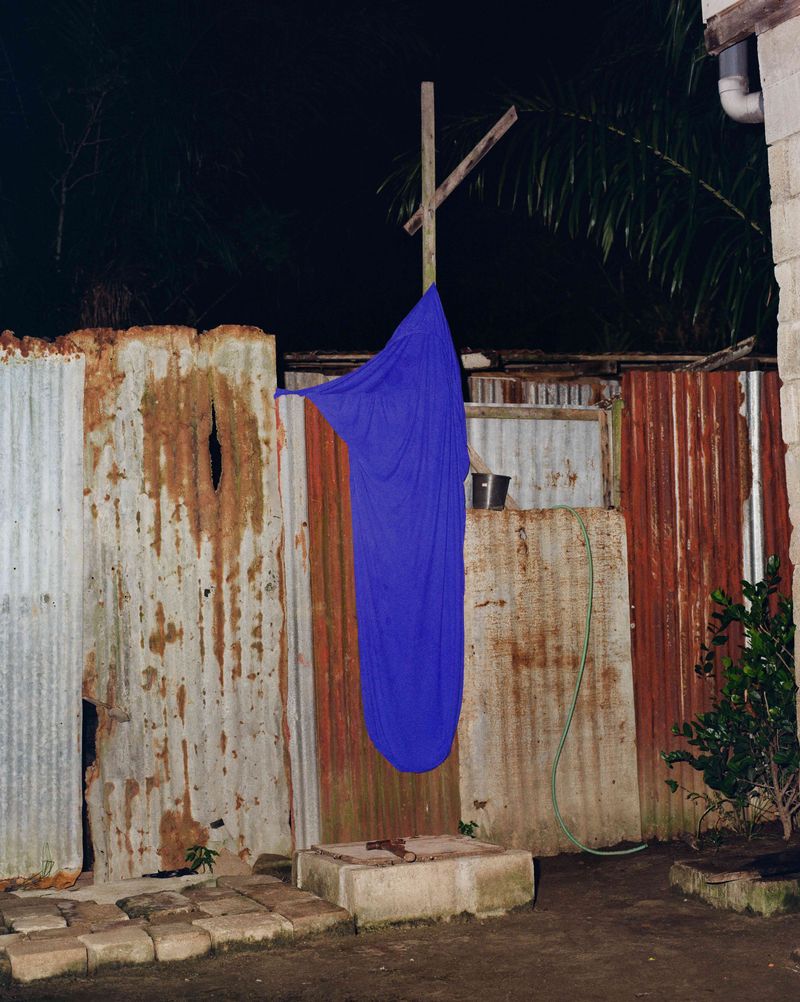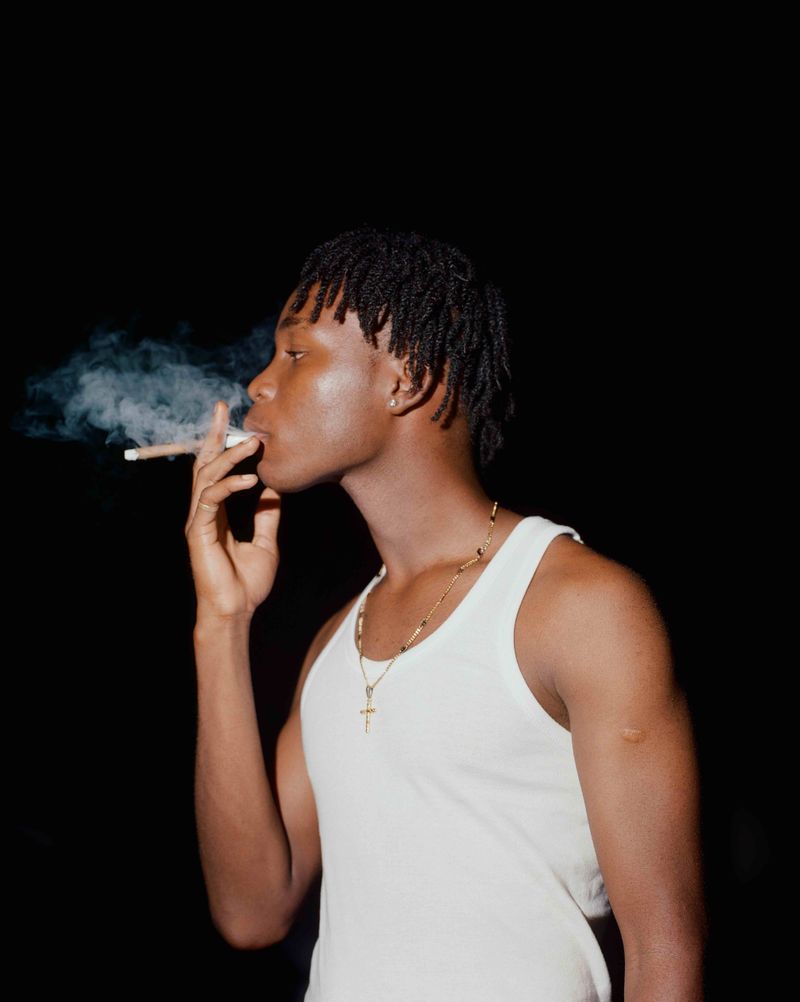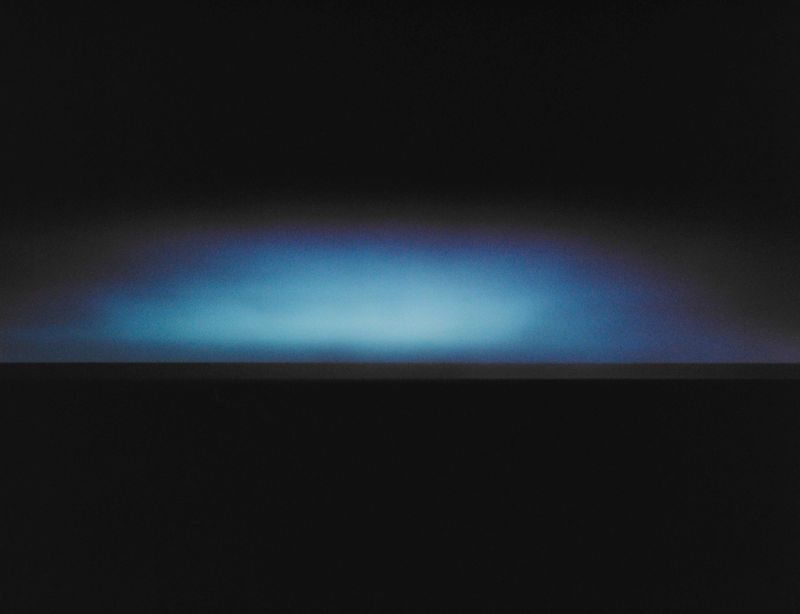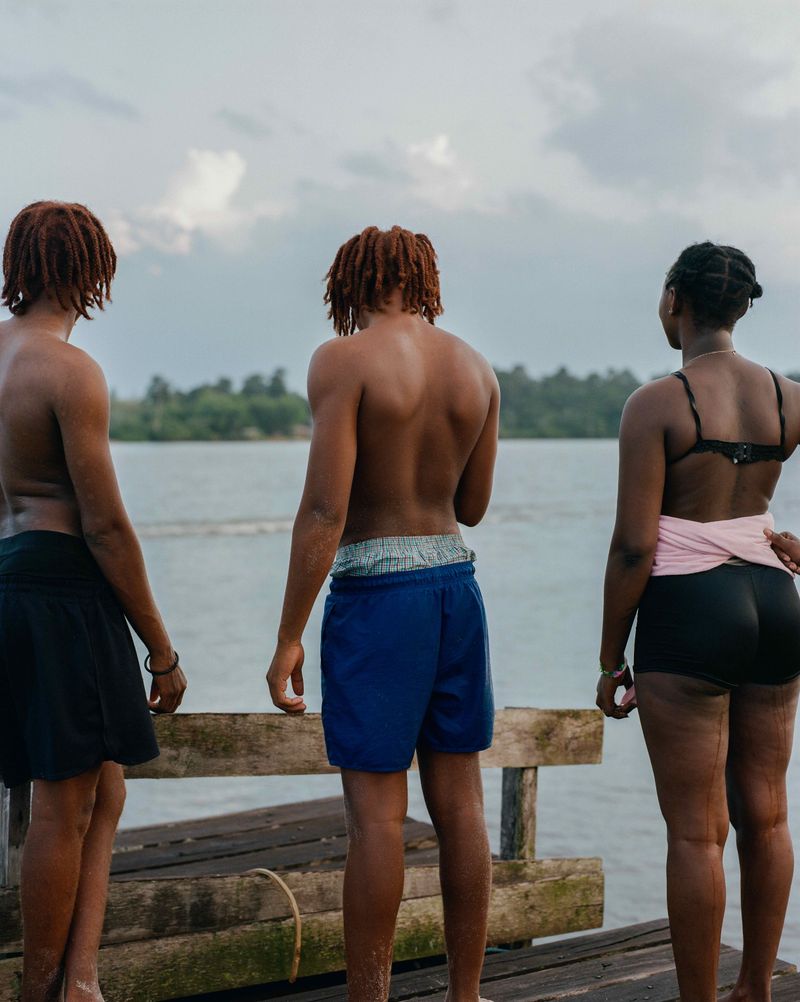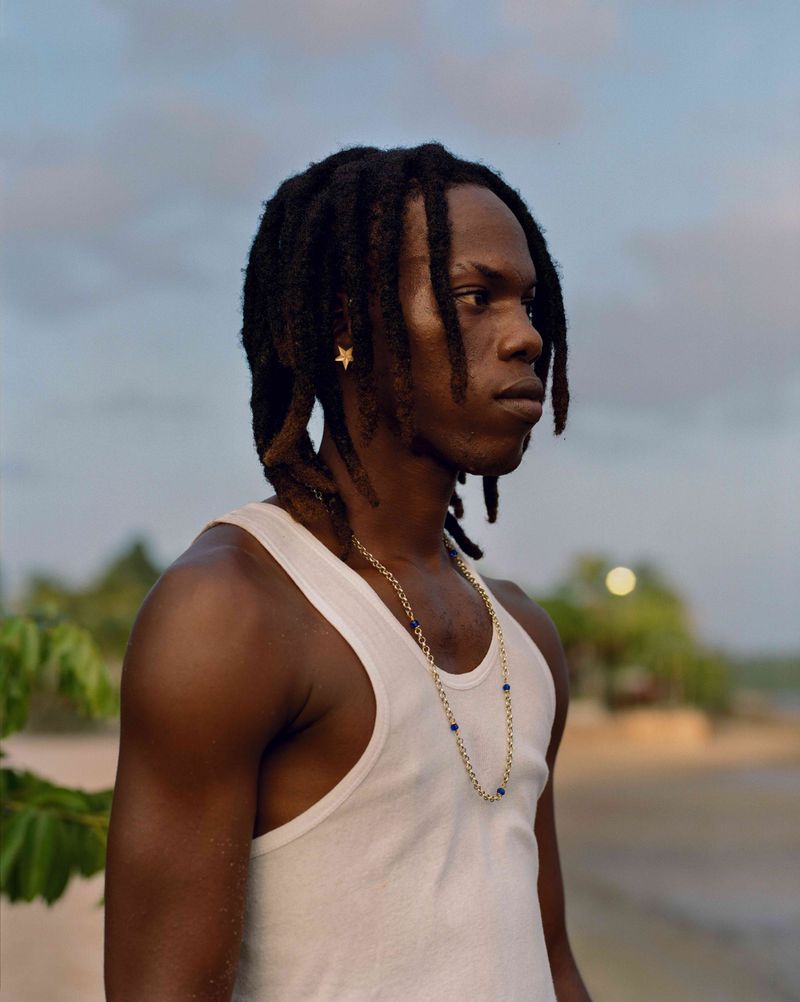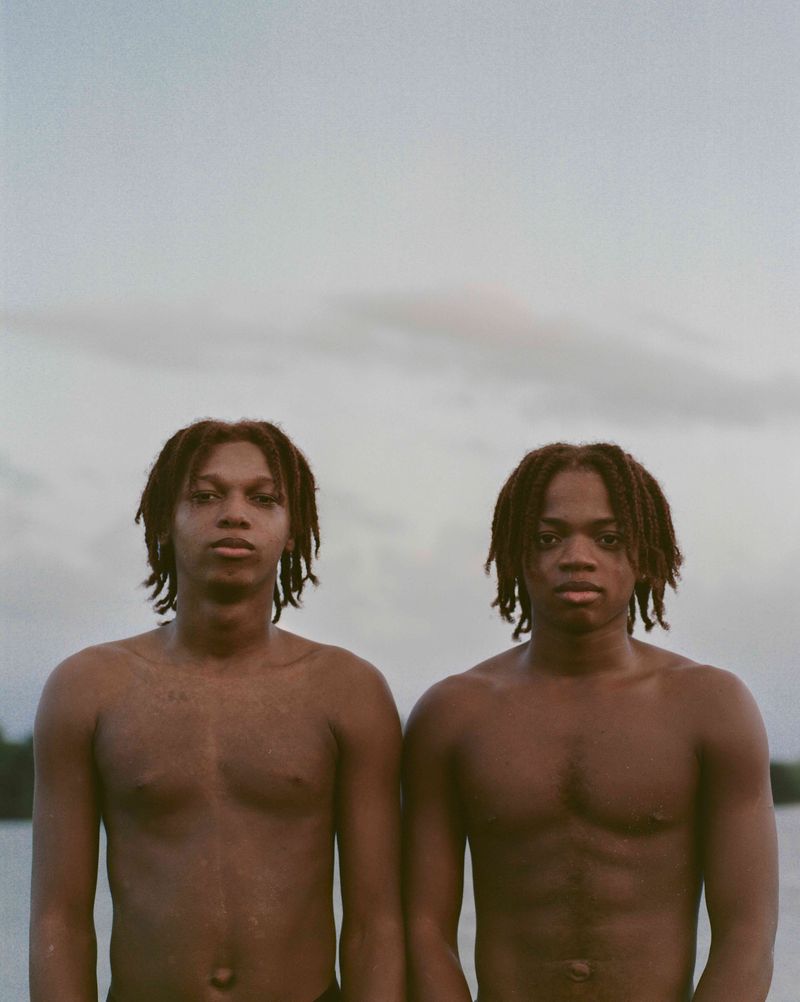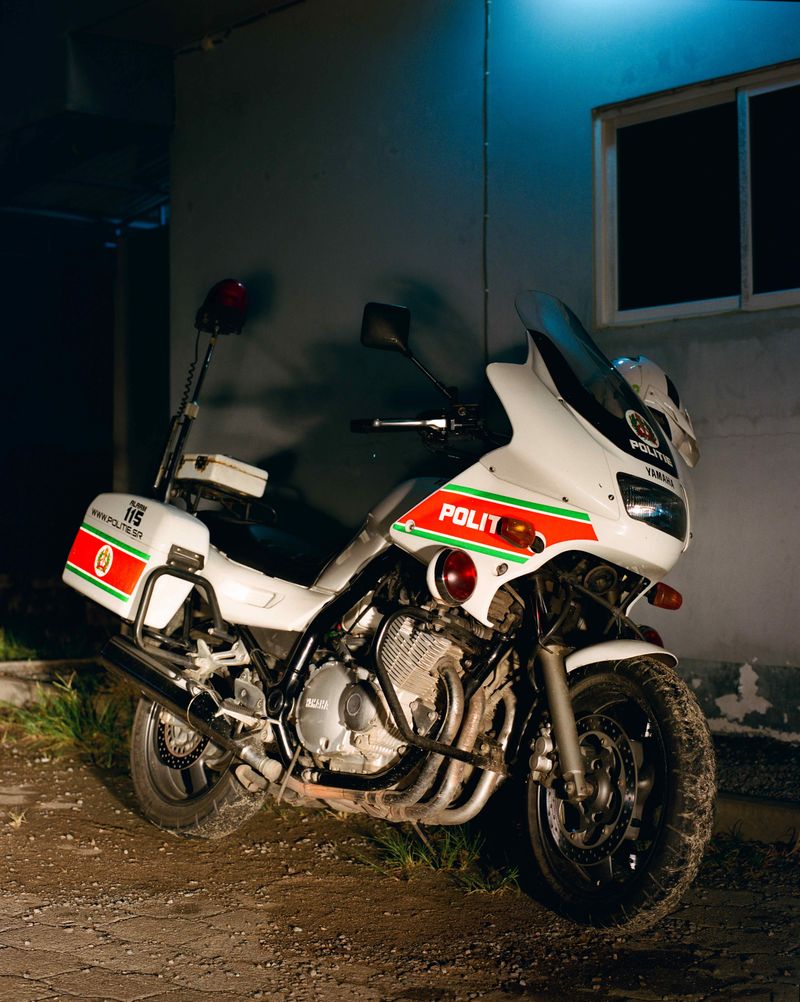Neti È Kon
-
Dates2023 - Ongoing
-
Author
- Locations Suriname, Caribbean Netherlands
In 'Neti È Kon,' which means 'The Night is Coming,' Faustino documents portraits of night scenes in Suriname, capturing the character of the night's spirit through the lens of its dialect, where the nights remind him of home.
Fidelio Faustino (b. 2001) is a photographer, cinematographer and director based in Amsterdam, the Netherlands and Paramaribo, Suriname. His work propagates the use of culture to create new expressions of identity. Rooted in a search for belonging and a sense of place, he seeks to research what Black imagery means to him and the public.
Neti È Kon (2023 - ongoing) photographed in Paramaribo, Suriname.
In 'Neti È Kon,' which means 'The Night is Coming,' Faustino documents portraits of night scenes in Suriname, capturing the character of the night's spirit through the lens of its dialect, where the nights remind him of home. He delves into elements that evoke a sense of 'home and belonging,' redefining it as an emotional construct rather than a physical location. Capturing the unique temperament of the forgotten Caribbean corners of the Dutch Kingdom — a land where Creole and Indigenous people have reinvented their existence, the series invites viewers to reflect on their perceptions of home.
“In Neti È Kon, meaning "The Night Comes," I document portraits of nighttime scenes in Suriname, capturing the character of the night through the lens of my dialect, where the nights remind me of home. Nighttime is when Suriname truly comes alive. People come out, streets fill with sounds, and the mystique of the land translates directly into the atmosphere. During these nights, I’m reminded of a feeling of home — family, youth gathering in the streets, and the vibrant dynamics that unfold. It's in these interactions, deeply rooted in our way of life, that community bonds are forged, and stories and traditions are passed down.
In this series, I explore elements that evoke a sense of "home and belonging," redefining it as an emotional concept rather than a physical location. In this way, I aim to archive my memories to capture my sense of home.
Through photography, I want to explore this concept by capturing intimate moments, as well as various physical spaces that evoke a sense of home — whether it’s a house, a room, or a specific place. This will be combined with portrait photography and symbolic elements that I’ll present as still-life compositions.
By capturing the unique spirit of these often-overlooked Caribbean corners of the Dutch Kingdom — places where Creole and Indigenous people have redefined their existence — the series invites viewers to reflect on their perceptions of home. Through a mix of real and staged shots that blur the line between documentary and fiction, I delve into the depths of truth and courage in relation to feelings of home, connection, and identity — complex themes that often leave us with unanswered questions, longing for context.
As a first-generation Afro-Caribbean person in the West, exploring the concept of belonging an endless journey into the dark. When I wander through Amsterdam, I’d say I only truly feel at home in places where my community lives. Yet, I would never feel fully at home in the Caribbean either. Born and raised in Amsterdam, I often ask myself: "What is home?" Knowing that it’s already difficult to grasp the concept of home and familiarity, I now pose the question "What does home feel like?".
As part of a community of first-generation Afro-Caribbeans, I notice that portrayals Caribbean people are often filtered through a Eurocentric lens, and I’m fascinated by the abstract and diffuse strength of Black existence, rather than the conventional notion Blackness as a single identity category.
Throughout history, the sense of beauty associated with Black bodies has been unfairly denied. Black communities are frequently depicted with repetitive stereotypes focused on poverty and nudity, presented from an outsider’s perspective that perpetuates a sense of otherness by labelling others as different.
With my camera, I want to challenge the European gaze that has limited our understanding of Afro-Caribbean identity. This series offers a perspective on a personal journey of discover grounded in my own knowledge and experiences. It invites viewers to reflect on their own ideas of home and belonging, carrying the message that identity is multifaceted.”
I began this project in 2023, traveling back to Suriname to find elements that would enrich my work. This journey marked the start of developing my photographic style, inspired by memory and fantasy. I captured portraits of family members and connected with people and places that play significant roles in the storyline.
The research phase has already garnered international recognition. I was invited as a guest to the “Beyond Borders: Diaspora & Representation” panel at Base Milano during the Photo Vogue Festival 2025, where several of my research images will be exhibited in the Latin American Panorama exhibition from May 6, 2024, to May 9, 2025. Additionally, my work was selected for the Photo31 Open Call and will be featured in the New Visions exhibition at AtelierK84 from December 13, 2024, to January 18, 2025. These opportunities allow me to expand the reach of the project and contribute to the broader dialogue on identity and representation.
I believe this open call presents a great opportunity to further develop Neti È Kon with your support. As a filmmaker and photographer, I strive to be part of a new generation that portrays this unique culture from the community's perspective, creating a new aesthetic within Caribbean culture. With PhMuseum's help, I can contribute to a new cultural representation that connects the Caribbean cultural landscape with significance that reaches far beyond its borders.
